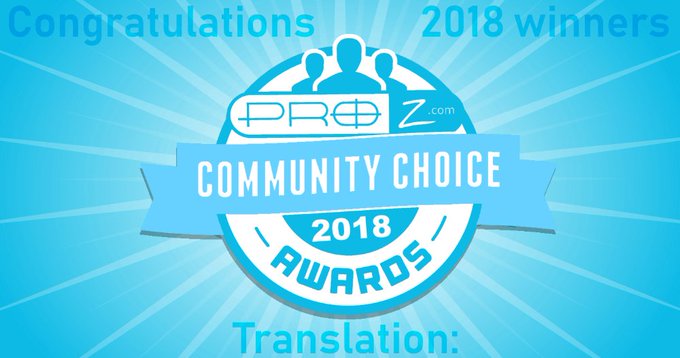All news
Story flagged by:
Jared Tabor
The Economist ran an article discussing health and humanitarian problems faced by people in Bangladesh and Nigeria, and the tricky work translators and interpreters have in bridging those in need with crisis responders. From the article:
The biggest practical issues concern health, says A.K. Rahim, a linguistics researcher working with Translators without Borders (TWB), a group that helps humanitarian agencies. In Chittagonian, health terms come from Bengali and English; scientific knowledge and vocabulary have trickled down from educated elites. But among the relatively few educated Rohingyas, health terms come from Burmese. Most—especially women, who tend to be cut off from the outside world and denied education—have not been touched by that learning. Instead they have developed their own lexicon. They avoid haiz (menstruation) and say gusol (shower). Diarrhoea, a common camp ailment, was routinely misdiagnosed in the first few months. Many Rohingyas reported, “My body is falling apart” (“Gaa-lamani biaram”), baffling health-care workers.
Read more >>
Story flagged by:
Jared Tabor
InterActive Terminology for Europe (IATE) has released an updated version of its terminology database. From http://termcoord.eu/ :
IATE, the EU’s interinstitutional terminology database was developed in the early 2000s. Despite its continuous development and maintenance ever since, due to technological evolution and changes in institutional terminology work, the need for a new, upgraded IATE has become clear. The development of IATE 2 started in 2016 and a brand-new version of IATE has been launched on Monday 12 November 2018.
->PRESS RELEASE AVAILABLE HERE<-
With 50 million queries per year, it is a highly popular tool for anyone looking for accurate terminology. It contains over 8 million terms in the 24 official EU languages and in a wide variety of subject areas.
Read more >>
The Belgian Chamber of Translators and Interpreters (CBTI-BKVT) published a market survey report for 2018 on translation and interpreting in Belgium.
You can find the full report here. It includes some interesting data on translator and interpreter clients, rates and income, specialization and diversification, tech used, and more.
If you are a translator or interpreter in Belgium, does the information in the report coincide with your own experience?
If you are not in Belgium, does anything in the report compare or contrast interestingly to the market in your area?
CBTI-BKVT Market Survey Report 2018 >>
There were some great candidates as well in the interpreting-related categories for this year’s ProZ.com community choice awards. Congratulations to the winners, and thank you to everyone who participated!
|

Blog: Best overall blog related to interpreting.
Blog post: For a single blog post, as opposed to the “blog” category, which is based on a blog as a whole.
Website: Best overall professional interpreter’s website.
Twitter: Best overall Twitter account.
@translationtalk – (An initiative by @adrechsel and @jeromobot)
Facebook page/group: Best overall Facebook page or group.
Podcast: Best podcast (series or single podcast).
Troublesome Terps – Alexander Drechsel, Alexander Gansmeier, Jonathan Downie
Conference speaker:
|
The results are in. Thank you to everyone who nominated candidates, and all who voted in this year’s Community choice awards. Here are the winners in the translation-related categories:

Blog: Best overall blog related to translation.
Website: Best overall professional translator’s website.
Twitter: Best overall Twitter account.
Facebook page/group: Best overall Facebook page or group.
Podcast: Best podcast (series or single podcast).
Trainer: Active trainer in in-person or online training.
Article: Best article published (online or in print form).
Book: Best book published (print or digital format). May include re-releases or new editions.
Blog post: For a single blog post, as opposed to the “blog” category, which is based on a blog as a whole.
ProZ.com profile: Most professional/attractive ProZ.com profile.
Alexander Manaenkov – Games, Apps, Web | manoftranslation.com
Most helpful contributor: All-around contributions, be they in forums, in term help, on social media, etc.
|
Read more
When it comes to learning a foreign language, we tend to think that children are the most adept. But that may not be the case – and there are added benefits to starting as an adult.
“Not everything goes downhill with age,” says Antonella Sorace, a professor of developmental linguistics and director of the Bilingualism Matters Centre at the University of Edinburgh.
She gives the example of what is known as ‘explicit learning’: studying a language in a classroom with a teacher explaining the rules. “Young children are very bad at explicit learning, because they don’t have the cognitive control and the attention and memory capabilities,” Sorace says. “Adults are much better at that. So that can be something that improves with age.”
A study by researchers in Israel found, for example, that adults were better at grasping an artificial language rule and applying it to new words in a lab setting. The scientists compared three separate groups: 8-year-olds, 12-year-olds, and young adults. The adults scored higher than both younger groups, and the 12-year-olds also did better than the younger children.
This chimed with the results of a long-term study of almost 2,000 Catalan-Spanish bilingual learners of English: the late starters acquired the new language faster than the younger starters.
Read more >>
Story flagged by:
paula arturo
I’d like to share my latest post with you. It’s the first of a series of posts on Legal Translation and Plain Language. This one, in particular, focuses on how legal translators can benefit from interpretation theory, mainly textualism. It’s called “Legal Translation and Plain Language: What Translators Can Learn from Judges.” Here’s a little extract:
Textualism, intentionalism, and purposivism are not the only interpretation theories out there, but they are arguably the most prominent. Applied to translation, textualism is analogous to asking ourselves what a competent source language speaker would understand if aware of the fact that the text at hand is a legal text. Intentionalism is analogous to asking ourselves what the drafter of the source text subjectively intended to convey. And purposivism is analogous to asking ourselves what the reasonable objective meaning of the source text is, even if that means digressing from the plain meaning of the text.
None of these involve literality, yet applied methodologically to translation, all can result in high degrees of fidelity to source and, more importantly, help translators construct objective criteria when interpreting a text. However, unlike judges, translators don’t always have access to sufficient background information to identify the intention of the drafter, be it subjective or objective. And, unlike the drafter, translators don’t have the power to decide whether the target text should be written in plain language or not. That is, of course, up to the drafter or client.
What translators can do, instead, is adopt a more methodological approach to interpretation—one that, to some extent, emulates how judges approach legal texts and helps unravel the meaning that needs to be captured from the source text and conveyed in the target text. That, however, involves being able to extract the plain meaning of a text, which in turn, also involves understanding what plain language is and how it can be helpful.
Read more >>
Story flagged by:
Faruk Atabeyli
“I have two large panes of glass at the bottom of the window above the desk where I work, one has little distorting flaws in it, the other, probably a modern replacement, allows an undistorted view of the garden beyond. In presenting a foreign text in English, I would wish to be like that perfectly transparent pane of glass, but I’m well aware that the slightly distorting pane is probably the one I resemble.”

Read more >>
| | | | X Sign in to your ProZ.com account... | | | | | | Translation news Stay informed on what is happening in the industry, by sharing and discussing translation industry news stories.
I receive the daily digest, some interesting and many times useful articles! I read the daily digest of ProZ.com translation news to get the essential part of what happens out there! The translation news daily digest is my daily 'signal' to stop work and find out what's going on in the world of translation before heading back into the world at large! It provides a great overview that I could never get on my own. susan rose (X)United States  |



